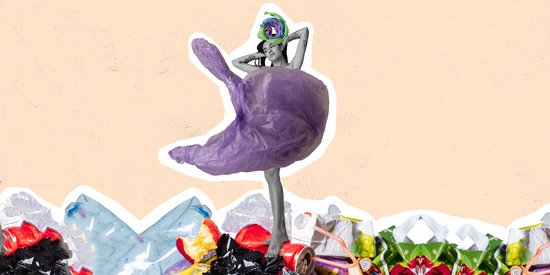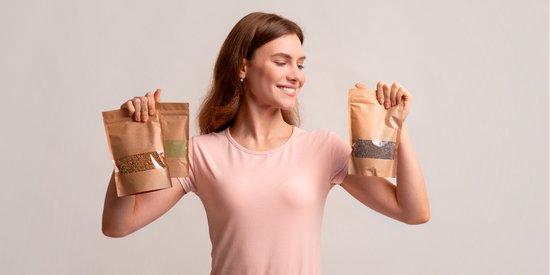So, it's time to consider making your own compost. It is simply derived from the fermentation of organic waste. Therefore, your fruit and vegetable peelings, your coffee grounds, tea bags, nut shells and other biodegradable waste can possibly all be put to good use!
Plus, if you're lucky enough to have a garden, adding dead leaves and grass clippings can boost the diversity of your compost and therefore increase its effectiveness! But even if you don’t have a garden, making your own compost is eco-friendly and helps you cut down on waste.
Best compost recipe:
- A good dose of oxygen, for better hygiene
- Mushrooms and other types of fungi (fun guys!)
- A few bacteria to stir things up
- Other micro-organisms to do any extra work
- Minerals and organic matter in abundance
- Which will then embellish your ( or someone else’s) beautiful plants
Now that we are on the same wavelength, here are some examples for making homemade compost, whether you have a garden or not. Not only will you be proud and eco friendly, but you will be also on your path to becoming green and environmentally friendly.
If you do have a garden, a container to store your waste in is the first step in your journey. This should be fitted with a cover or a tarp to protect your compost from the wind. This container should be in direct contact with the ground. If you use a bottomless composter, worms and other insects will then be able to colonize this wonderful feast that you are feeding them.
You can build this container yourself or opt for the purchase of a ready-made compost container, many of which exist on the market in the form of a kit, these are easy to assemble and often come at a lower cost. A cheap do-it-yourself option is to go for wooden pallets and to build your own.
Size wise: a 1m3 composter is relatively decent for an area of 500m2.
If you do not have a garden, it is possible to install a vermicomposter on your balcony or in your garage. You will only need a space of 50 x 50 cm to place your composter. The vermicomposter takes its name from your new best friends the worms, in particular earthworms (Lumbricidae). These earthworms will be placed inside your composter to allow their nutrition. The organic matter they ingest will produce a liquid and a pasty compost, which can then be used as liquid fertilizer. You will need to mix your compost every month to allow its reoxygenation. Because without this work, the compost dies. After several months (about 4 to 6 months) your compost will be ready for use.
In addition, for any other lovers of decomposition, other possibilities are available to you such as Bokashi compost. This kitchen composter allows the fermentation process to be carried out thanks to effective microorganisms (present in the Bokashi activator), while preventing putrefaction and the release of unpleasant odors. Which can be a plus if you are sensitive to bad smells! This activator is simply a mixture of wheat bran, molasses and lactic acid bacteria, yeasts, photosynthetic organisms and actinomycetes (fungi).
In short, thanks to unparalleled motivation, your household waste will be reduced by approximately 30%. Say goodbye to "it's your turn to empty the trash" every 5 minutes!
What not to put into your compost
Worms will not eat meat and dairy products and both of these make stinky compost. Fats will also ruin the quality of your earth. Citrus fruits and citrus fruit peel can cause acidity and issues with the PH of your compost. In addition, be careful on what packaging you may decide to add to your compost. Cardboard that is plastic coated, tea bags that are bleached and not eco-friendly, egg boxes that are coloured… try to keep things as pure as possible. You may also like to avoid putting weeds into your compost. Weeds are weeds, they are hardy and can spring up again when you least expect it! And of course, the smaller you break up your waste, the quicker it will rot.
But anyway, what is the point of compost if you don’t have any plants available to use it? Well for a start, you can take this lovely, earthy gift to your closest friends who do have a garden. You may also like to go to a local garden center and see if they would like your compost there. Or, start getting plants to use your compost! Get green fingered and go green today!









